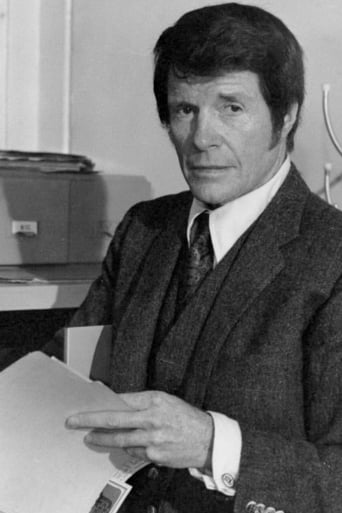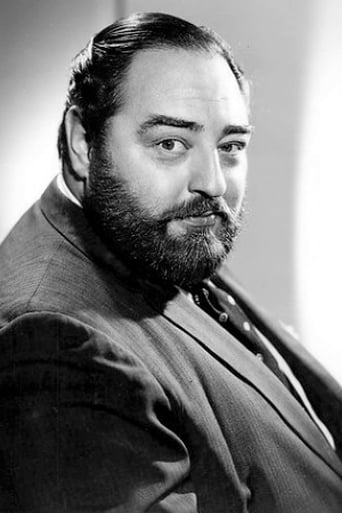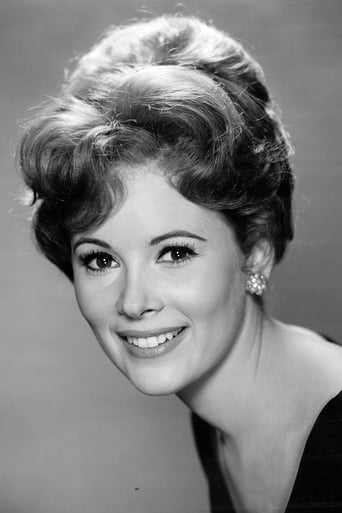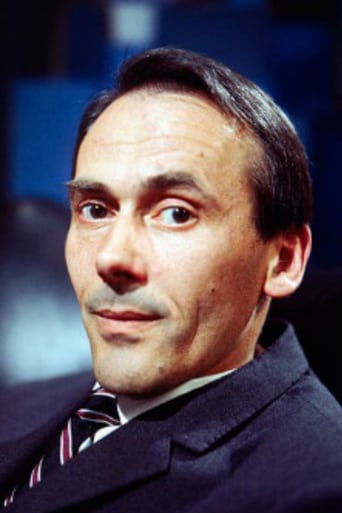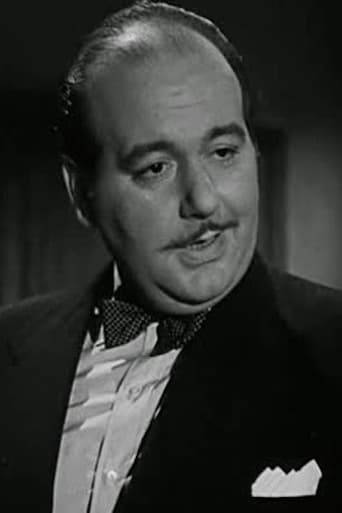Linbeymusol
Wonderful character development!
Micah Lloyd
Excellent characters with emotional depth. My wife, daughter and granddaughter all enjoyed it...and me, too! Very good movie! You won't be disappointed.
Griff Lees
Very good movie overall, highly recommended. Most of the negative reviews don't have any merit and are all pollitically based. Give this movie a chance at least, and it might give you a different perspective.
Kimball
Exactly the movie you think it is, but not the movie you want it to be.
jawlaw
Due, in part, to President Kennedy's affinity to the Ian Fleming novels, and the seemingly endless "Cold War," the 60's saw the founding of the spy movie genre as we now know it. After the Bond movies made box office gold, there were soon other franchises such as the "Flint" movies and the "Matt Helm" and "Harry Palmer" franchises. While the Harry Palmer films were serious spy stories, most of the competing franchises were more spoofs of the Bond series than serious spy films. The Bond films eventually devolved into less serious spy films as well, until the Daniel Craig era brought things back to a more serious tone. When the spy movie era arrived, television jumped on the bandwagon right away. There were series such as "The Man From Uncle" and "I Spy" which sought to cash in on the spy genre. However, other than these regular series, there was only one "made for TV" spy movie franchise known to this writer and that was the John Smith series. This series has simply not been given the attention deserved as these are very good stories in the John le Carre' or "Harry Palmer" tradition. They were made in Pinewood Studios in Britain (where many of the early Bond films were made) and enjoyed a British flair to their production. These movies stand out as excellent spy movies (with a strong film noir feel to them) albeit made for the ABC movie of the week time slot which limited them to 75 minutes each. This is the only draw back in these films—the editing to fit the time slot sometimes moved the story too quickly. Robert Horton was cast as the lead character. This was quite a departure for him since he had been primarily an actor in westerns prior to filming "The Spy Killer" and its follow-up film "Foreign Exchange." After his departure from "Wagon Train" there was briefly talk of him starring in a private eye series but this never came to pass. He continued to play characters from the old west until this series. Horton was a good actor and a good choice for this franchise as he had good screen presence and was convincing in the role. John Smith is a former operative of the C.I.A. and, later, British Intelligence and has been an assassin for his English boss "Max"--- played exquisitely by Sebastian Cabot. Smith has retired from the spy business because he was forced to kill someone who "didn't have it coming." Jill St. John plays his girlfriend during her long hair period when, in this writer's humble opinion, she was her most beautiful. Her acting in this is actually pretty good for sometimes she has been called upon to be eye candy rather than a serious actor. The novels that these films were based upon were written by Jimmy Sangster (Britain's answer to America's Richard Matheson, with more of a bent for film noir) who wrote only two novels in the John Smith series, viz "Private, I" (which became "The Spy Killer") and "Foreign Exchange." The stories are serious spy stories, without the flashy cars or gadgets and constant gun play. Indeed, Smith's pistol is kept in a safe deposit box and it is a Colt 1911 A-1 Army model—the kind of gun to which a former military man might have an affinity. Sangster keeps everyone guessing as to who will double cross whom next. The beauty of these films is that, as in the real world of espionage, nothing is to be trusted or taken at face value. The plot and dialogue of both films are extremely good (which tends to be the case with British productions—face it, the Brits are more artful with the language than most Americans). These films would be the last starring roles for Robert Horton in a movie, for he would soon take his career to the stage and Broadway and only occasionally appear thereafter on TV or in film. It is a pity that three or four additional installments to the series did not come to pass for it was a great character. But, like the Flint saga, it ended after only two movies. This writer hopes and predicts that, now that Robert Horton has passed away, these films will be rediscovered. Good luck finding copies of these films. "The Spy Killer" is available on Amazon in a DVD with four other old movies, but "Foreign Exchange" is currently only available in bootleg copies.
Uriah43
When the news of a Russian spy being arrested in London is announced in the local newspaper a former spy now turned private eye becomes very concerned. Sure enough, "John Smith" (Robert Horton) is soon contacted by British Intelligence and asked to participate in a clandestine operation. At first John refuses but when his American girlfriend "Mary Harper" (Jill St. John) is threatened with immediate deportation he begrudgingly accepts the assignment. Essentially, the Russian spy arrested in London has been converted into a double agent and British Intelligence wants to position him in Moscow. So they want John to get arrested in Russia so that a trade can be worked out between the Russian spy and him. The Russian spy would be sent to Moscow in exchange for John. Unfortunately, although John gets arrested in Moscow the trade doesn't work out as planned and he now faces 25 years in Siberia with no way out. Anyway, rather than detail the entire story and risk ruining the film for those who haven't seen it I will just say that this was a pretty interesting spy caper which involved a complex game of espionage. Yet, while this movie had plenty of intrigue I thought it needed a bit more action, drama or suspense to really be effective. I also would have liked to have seen more of Jill St. John than what was offered. Additionally, from what I understand this particular movie may have been a follow-up to another film by the name of "The Spy Killer" and it's possible viewers could gain a greater appreciation or more perspective if they watched that one first. In any case, due to my previous comments I rate this movie as about average.
ShadeGrenade
'Foreign Exchange' was the second of two made-for-television films starring Robert Horton as 'John Smith', ex-spy turned private eye. The first was 'The Spy Killer'.A Russian agent has been arrested in London. Actually, he has been working for the British for years, sending false information back to the homeland. Max ( Sebastian Cabot ), head of British Intelligence, wants to send him home to a hero's welcome, where he will be our top man at the heart of the Kremlin. To make his return look convincing, Max asks Smith to allow himself to be arrested by the Russians, so that he can be exchanged in a diplomatic swap. Naturally, a suspicious Smith turns the job down. But when Max threatens to have Smith's girlfriend Mary Harper ( Jill St.John ) deported to America, he agrees to the plan.Smith is sent behind the Iron Curtain where he is picked up and interrogated by Borensko ( Eric Pohlmann ). But the spy Smith is supposed to be swapped with has died unexpectedly of a heart attack. Smith now faces a bleak future as a prisoner in a Siberian work-camp...As with 'The Spy Killer', this is a complex yarn with more twists and turns than a corkscrew. It is not the sort of film where you can pop out for a coffee in between shots, it requires concentration. It is worth the effort though, as like its predecessor, it takes a cynical view of the Cold War. Max is such a devious swine you wonder why Smith does not throttle him.Also in the cast is the late Dudley Foster as 'Leo'. Foster, who committed suicide in 1973, was a talented actor capable of switching effortlessly from comedy roles ( he appeared a few times in 'Steptoe & Son' ) to more dramatic ones, and found time to menace 'John Steed' in 'The Avengers' and Patrick Troughton's 'Dr.Who'. Eric Pohlmann was 'The Fat Man' in 'Carry On Spying' and the ( uncredited ) voice of 'Blofeld' in 'From Russia With Love'.Things To Look Out For - during the fashion show, on the catwalk is Carol Cleveland, best known for playing the pretty girl roles in 'Monty Python's Flying Circus'.Hardly any action to speak of, but it does not matter. If you liked 'The Spy Killer', you are bound to like this too.
Ted Watson (tbrittreid)
The director, novelist/scriptwriter, and three stars of the previous year's "The Spy Killer" are back with another twisty espionage yarn. This time, intelligence chief Max (Sebastian Cabot) forces ex-agent John Smith (Robert Horton) to go behind the Iron Curtain by threatening to deport his American girlfriend/model (Jill St. John). As with the earlier film, attention must be paid, but the rewards are immense. If you like tough, cynical intelligence thrillers and have the opportunity to see this, don't let it go by.
